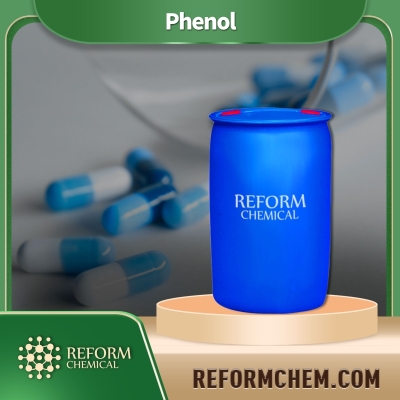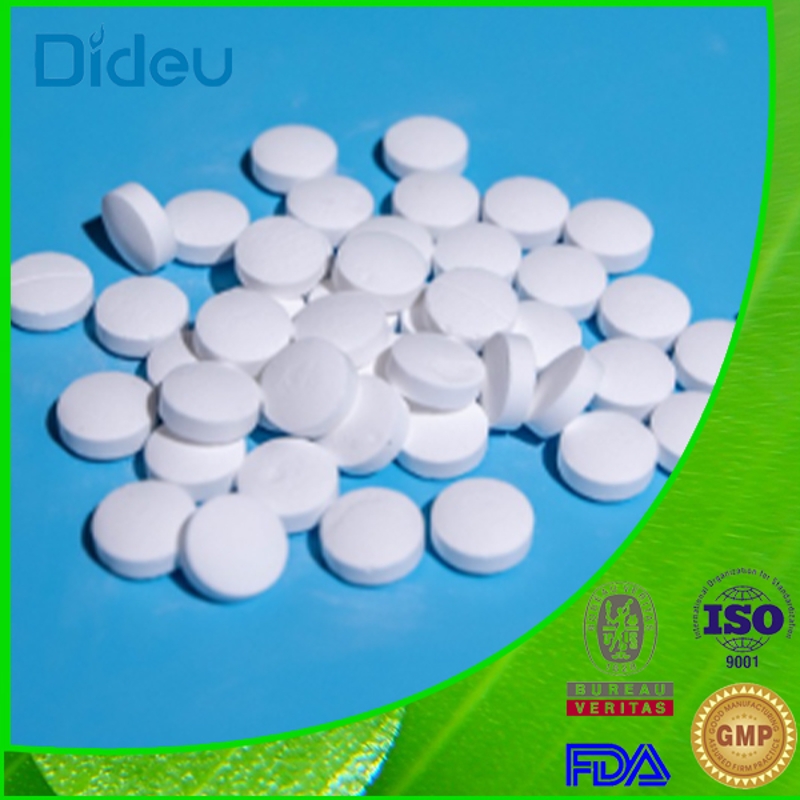-
Categories
-
Pharmaceutical Intermediates
-
Active Pharmaceutical Ingredients
-
Food Additives
- Industrial Coatings
- Agrochemicals
- Dyes and Pigments
- Surfactant
- Flavors and Fragrances
- Chemical Reagents
- Catalyst and Auxiliary
- Natural Products
- Inorganic Chemistry
-
Organic Chemistry
-
Biochemical Engineering
- Analytical Chemistry
-
Cosmetic Ingredient
- Water Treatment Chemical
-
Pharmaceutical Intermediates
Promotion
ECHEMI Mall
Wholesale
Weekly Price
Exhibition
News
-
Trade Service
Author | Edited by Wang Cong | Typeset by Wang Duoyu | Shuichengwen AIDS (AIDS), the full name is Acquired Immune Deficiency Syndrome, which is a very harmful infectious disease caused by the Human Immunodeficiency Virus (HIV)
.
The HIV virus can attack and severely damage the human immune system.
Therefore, AIDS patients often suffer from secondary infections or tumors due to insufficient immunity, which also makes the mortality rate of AIDS patients extremely high
.
According to UNAIDS data, the number of HIV carriers and AIDS patients worldwide has increased from 34.
3 million at the end of 2013 to 38 million at the end of 2018, and the number is still growing rapidly
.
Although the continuous advancement of antiretroviral therapy (ART) has greatly extended the lifespan and prognosis of AIDS patients, it will also bring serious side effects and the emergence of drug resistance
.
More importantly, as a retrovirus, HIV can integrate its genome into the chromosome of the host cell.
This means that current antiretroviral therapy can only suppress the virus and cannot completely eliminate the HIV virus in the body.
There will be no cure for AIDS
.
Recently, Excision BioTherapeutics announced that its therapy EBT-101 based on CRISPR gene editing technology has been approved by the US FDA and will begin human clinical trials for the treatment of AIDS
.
Excision said that the existing standard treatment for AIDS is antiretroviral therapy, which can prevent the replication of HIV virus in the body, but cannot eliminate HIV virus.
Patients need to receive treatment for a long time, which can cause serious side effects and affect patients.
Quality of life
.
The therapy based on CRISPR gene editing technology is expected to replace the current antiretroviral therapy and achieve a "complete cure" for AIDS
.
In November 2020, researchers from Temple University and the University of Nebraska Medical Center published research papers in the journal Nature Communications
.
Successfully edited and eliminated the SIV-a virus closely related to HIV in the genomes of non-human primates, which is an important step in AIDS research
.
This breakthrough also makes mankind closer than ever to the development of a complete cure for AIDS
.
This research breakthrough is very close to clinical research, which means that mankind has found a new method that is expected to completely end the AIDS nightmare
.
Excision has been authorized by Temple University to conduct clinical research and development.
Today, the FDA has also approved its human clinical trials
.
As we all know, CRISPR-Cas9 gene editing can accurately cut DNA double-strands, resulting in DNA double-strand breaks.
Based on this principle, we can use CRISPR-Cas9 to cut the HIV virus genome that has been integrated into the human chromosome
.
However, if only one site is cut, they are easy to repair, and it is easy to cause genetic mutation near the cut site
.
This therapy uses multiple cuttings to completely smash the HIV virus genome, thereby achieving complete elimination of the HIV virus
.
Previous tests in non-human primates have shown that the CRISPR-Cas9 system delivered using adeno-associated virus (AAV9) vectors can reach a wide range of tissues where the bone marrow, lymph nodes, spleen and other viruses are located, especially the important host of the HIV virus.
CD4+ T cells to eliminate the virus
.
It is understood that Excision will officially launch Phase 1/2 clinical trials later this year
.
Excision is committed to curing viral infections through CRISPR gene editing technology.
Its CRISPR technology is licensed from Nobel Prize winner Jennifer Doudna
.
In addition to CRISPR-based AIDS therapy, the company’s R&D pipeline also includes the use of CRISPR technology to eliminate hepatitis B virus (HBV), herpes simplex virus (HSV), papilloma vacuole virus (JCV), and the current outbreak of new crowns Virus (SARS-CoV-2)
.
In addition to Excision’s R&D pipeline, Moderna, a vaccine development company that has exploded due to mRNA vaccines, also recently announced that it has developed an mRNA-based experimental AIDS vaccine that has been proven to trigger HIV-like viruses in monkeys.
As with the production of antibodies, it is reported that Moderna’s method is different from previous AIDS vaccines
.
It prevents HIV virus from entering cells by producing broadly neutralizing antibodies against the virus .
This vaccine based on mRNA technology also brings new hope to the repeatedly failed AIDS vaccine research
.
Reference materials: https:// https:// -editing-therapy-cleared-for-human-studies-by-fda https:// is open for reprinting, welcome to forward to the circle of friends and WeChat groups
.
The HIV virus can attack and severely damage the human immune system.
Therefore, AIDS patients often suffer from secondary infections or tumors due to insufficient immunity, which also makes the mortality rate of AIDS patients extremely high
.
According to UNAIDS data, the number of HIV carriers and AIDS patients worldwide has increased from 34.
3 million at the end of 2013 to 38 million at the end of 2018, and the number is still growing rapidly
.
Although the continuous advancement of antiretroviral therapy (ART) has greatly extended the lifespan and prognosis of AIDS patients, it will also bring serious side effects and the emergence of drug resistance
.
More importantly, as a retrovirus, HIV can integrate its genome into the chromosome of the host cell.
This means that current antiretroviral therapy can only suppress the virus and cannot completely eliminate the HIV virus in the body.
There will be no cure for AIDS
.
Recently, Excision BioTherapeutics announced that its therapy EBT-101 based on CRISPR gene editing technology has been approved by the US FDA and will begin human clinical trials for the treatment of AIDS
.
Excision said that the existing standard treatment for AIDS is antiretroviral therapy, which can prevent the replication of HIV virus in the body, but cannot eliminate HIV virus.
Patients need to receive treatment for a long time, which can cause serious side effects and affect patients.
Quality of life
.
The therapy based on CRISPR gene editing technology is expected to replace the current antiretroviral therapy and achieve a "complete cure" for AIDS
.
In November 2020, researchers from Temple University and the University of Nebraska Medical Center published research papers in the journal Nature Communications
.
Successfully edited and eliminated the SIV-a virus closely related to HIV in the genomes of non-human primates, which is an important step in AIDS research
.
This breakthrough also makes mankind closer than ever to the development of a complete cure for AIDS
.
This research breakthrough is very close to clinical research, which means that mankind has found a new method that is expected to completely end the AIDS nightmare
.
Excision has been authorized by Temple University to conduct clinical research and development.
Today, the FDA has also approved its human clinical trials
.
As we all know, CRISPR-Cas9 gene editing can accurately cut DNA double-strands, resulting in DNA double-strand breaks.
Based on this principle, we can use CRISPR-Cas9 to cut the HIV virus genome that has been integrated into the human chromosome
.
However, if only one site is cut, they are easy to repair, and it is easy to cause genetic mutation near the cut site
.
This therapy uses multiple cuttings to completely smash the HIV virus genome, thereby achieving complete elimination of the HIV virus
.
Previous tests in non-human primates have shown that the CRISPR-Cas9 system delivered using adeno-associated virus (AAV9) vectors can reach a wide range of tissues where the bone marrow, lymph nodes, spleen and other viruses are located, especially the important host of the HIV virus.
CD4+ T cells to eliminate the virus
.
It is understood that Excision will officially launch Phase 1/2 clinical trials later this year
.
Excision is committed to curing viral infections through CRISPR gene editing technology.
Its CRISPR technology is licensed from Nobel Prize winner Jennifer Doudna
.
In addition to CRISPR-based AIDS therapy, the company’s R&D pipeline also includes the use of CRISPR technology to eliminate hepatitis B virus (HBV), herpes simplex virus (HSV), papilloma vacuole virus (JCV), and the current outbreak of new crowns Virus (SARS-CoV-2)
.
In addition to Excision’s R&D pipeline, Moderna, a vaccine development company that has exploded due to mRNA vaccines, also recently announced that it has developed an mRNA-based experimental AIDS vaccine that has been proven to trigger HIV-like viruses in monkeys.
As with the production of antibodies, it is reported that Moderna’s method is different from previous AIDS vaccines
.
It prevents HIV virus from entering cells by producing broadly neutralizing antibodies against the virus .
This vaccine based on mRNA technology also brings new hope to the repeatedly failed AIDS vaccine research
.
Reference materials: https:// https:// -editing-therapy-cleared-for-human-studies-by-fda https:// is open for reprinting, welcome to forward to the circle of friends and WeChat groups







